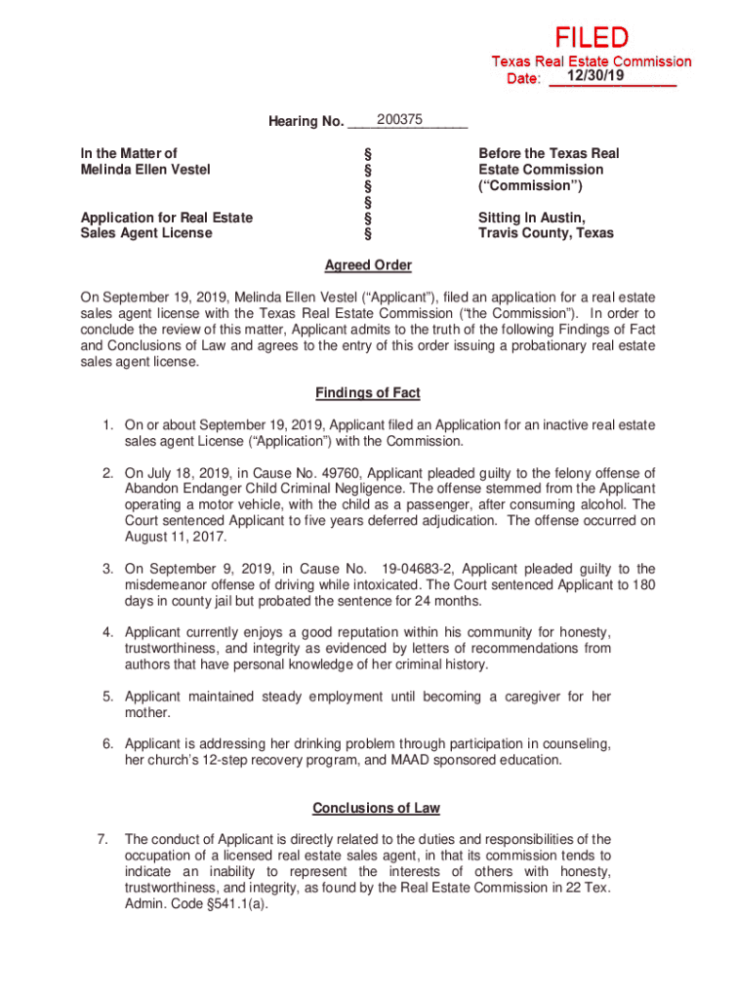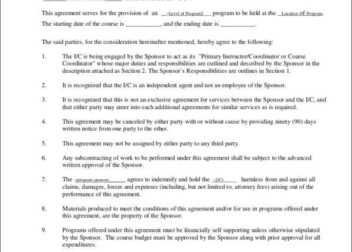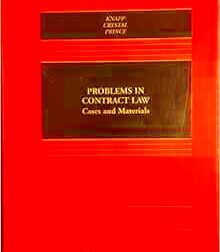Exploring Texas Law of Contracts and Its Application
Contract law in Texas governs the agreements made between parties. It is crucial for ensuring that both sides fulfill their obligations. This area of law is built on the idea of mutual consent, where all parties involved understand and agree to the terms. Understanding the basics of contract law can help individuals and businesses avoid disputes and protect their rights.
Key Elements of a Valid Contract

To form a valid contract in Texas, certain key elements must be present:
- Offer: One party must propose an arrangement to another.
- Acceptance: The other party must agree to the terms of the offer.
- Consideration: There must be something of value exchanged between the parties, such as money or services.
- Mutual Assent: Both parties must have a clear understanding of and agree to the contract’s terms.
- Capacity: Parties must have the legal ability to enter into a contract, meaning they are of sound mind and legal age.
- Legality: The contract’s purpose must be legal and not against public policy.
When these elements are present, the contract is generally enforceable in a court of law.
Types of Contracts Recognized in Texas
Texas recognizes various types of contracts, each serving different purposes. Here are some common types:
- Written Contracts: These are formal agreements documented in writing, often required for significant transactions.
- Verbal Contracts: While less formal, these are agreements made through spoken communication. However, they can be harder to enforce.
- Implied Contracts: These are formed by the actions or circumstances of the parties, rather than written or spoken words.
- Unilateral Contracts: Involves a promise made by one party in exchange for an action from another.
- Bilateral Contracts: Both parties make mutual promises to each other.
Understanding the different types of contracts can help parties choose the best format for their agreements and clarify their rights and obligations.
Common Defenses Against Contract Enforcement
When a party is accused of breaching a contract, they can raise defenses to avoid enforcement. Understanding these defenses is crucial because they can help protect rights and mitigate potential liabilities. In Texas, several common defenses can be used:
- Lack of Capacity: If a party was not of sound mind or legal age at the time of signing, they may argue that the contract is invalid.
- Fraud: If one party misled the other into entering the contract through deception, this can serve as a defense.
- Duress: Contracts signed under threat or coercion may be deemed unenforceable.
- Mutual Mistake: If both parties were mistaken about a fundamental fact when forming the contract, it can be voided.
- Illegality: If the contract involves illegal activities, it cannot be enforced by law.
Being aware of these defenses can be a game-changer in contract disputes, providing options for those accused of breaching an agreement.
Contract Interpretation and Enforcement in Texas
Interpreting and enforcing contracts is a vital part of contract law in Texas. Courts often face the challenge of determining the true meaning of contract terms when disputes arise. Here’s how this process works:
- Plain Meaning Rule: Courts typically look at the ordinary meaning of words used in the contract.
- Intent of the Parties: Courts try to ascertain what the parties intended when they entered into the contract.
- Parol Evidence Rule: Generally, only the written contract terms will be considered, and prior oral or written negotiations are excluded unless the contract is ambiguous.
Understanding these principles can help parties better draft their contracts, ensuring clarity and reducing the likelihood of disputes.
Remedies for Breach of Contract
When a contract is breached, the non-breaching party is entitled to remedies. Texas law provides several options to address breaches, ensuring that parties can seek justice. Here are the main types of remedies:
- Compensatory Damages: These are intended to cover direct losses resulting from the breach, putting the injured party in the position they would have been in if the contract had been fulfilled.
- Consequential Damages: These are indirect damages that occur as a foreseeable result of the breach, such as lost profits.
- Specific Performance: In some cases, the court may order the breaching party to perform their contractual obligations, rather than just paying damages.
- Rescission: This remedy cancels the contract, releasing both parties from their obligations.
- Reformation: In situations where a contract has mistakes, a court may modify the terms to reflect what the parties actually intended.
Choosing the right remedy can significantly impact the outcome of a breach, so understanding these options is crucial for anyone involved in a contract.
Statute of Limitations for Contract Claims
In Texas, the statute of limitations sets a deadline for bringing a legal action based on a contract. This time frame is essential for both parties to understand, as it helps maintain the integrity of evidence and ensures disputes are resolved promptly. For most contract claims, the statute of limitations is four years. However, there are specific rules and exceptions to keep in mind:
- Written Contracts: The four-year limit generally applies to written agreements.
- Oral Contracts: For oral agreements, the statute of limitations is also four years, but proving these contracts can be more challenging.
- Discoverability: The clock starts ticking when the injured party discovers the breach or should have discovered it with reasonable diligence.
- Minors and Mentally Incompetent Individuals: If a party is a minor or declared mentally incompetent, the statute of limitations may be extended.
Being aware of these timelines is crucial. Failing to file a claim within the statute of limitations can result in losing the right to pursue the matter legally.
Practical Tips for Contract Management
Effective contract management can save time, money, and potential disputes. Here are some practical tips to help individuals and businesses manage their contracts better:
- Keep Everything Organized: Maintain a centralized file for all contracts, including any amendments or related documents.
- Review Regularly: Periodically revisit contracts to ensure all parties are meeting their obligations and to identify any potential issues.
- Be Clear and Specific: Draft contracts with precise language to avoid misunderstandings. Define all terms clearly.
- Track Deadlines: Use reminders for important dates, such as renewal or expiration dates, to avoid lapsing agreements.
- Seek Legal Advice: When in doubt, consult a legal professional to ensure compliance and protection of rights.
By following these tips, you can ensure that your contracts are managed effectively, reducing the risk of disputes and enhancing business relationships.
FAQs
Here are some frequently asked questions about contract law in Texas that can help clarify common concerns:
- What is a breach of contract? A breach occurs when one party fails to fulfill their obligations under the contract.
- Can verbal contracts be enforced? Yes, but they can be challenging to prove compared to written contracts.
- What happens if a contract is not signed? If both parties have acted in accordance with the terms, an implied contract may still exist.
- Can I change a contract after it’s signed? Yes, but all parties must agree to the changes, and it’s best to document them in writing.
- How can I terminate a contract? Review the contract for termination clauses, which outline how either party can end the agreement legally.
Understanding these FAQs can provide clarity and help you navigate the complexities of contract law in Texas.
Conclusion
Understanding contract law in Texas is essential for anyone involved in agreements, whether for personal or business purposes. By grasping the key elements of a valid contract, the various types of contracts, common defenses against enforcement, and remedies for breach, you can navigate the legal landscape more effectively. Remember to manage contracts diligently and be aware of the statute of limitations for claims. With this knowledge, you can protect your rights and ensure that your agreements serve their intended purpose, fostering positive relationships and avoiding potential disputes.


